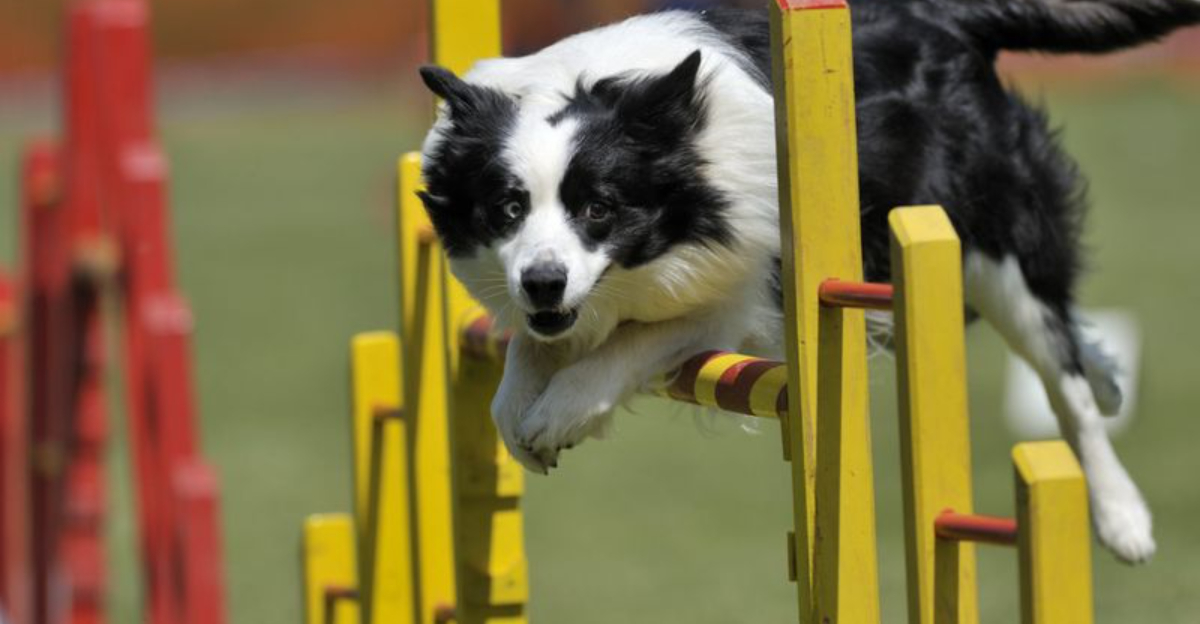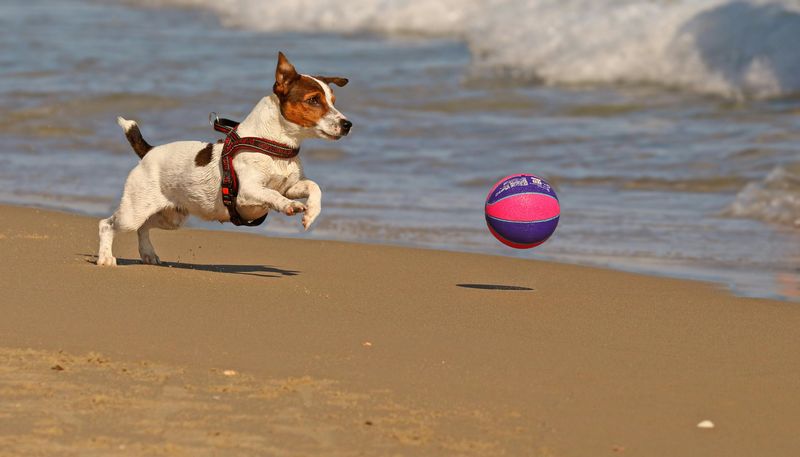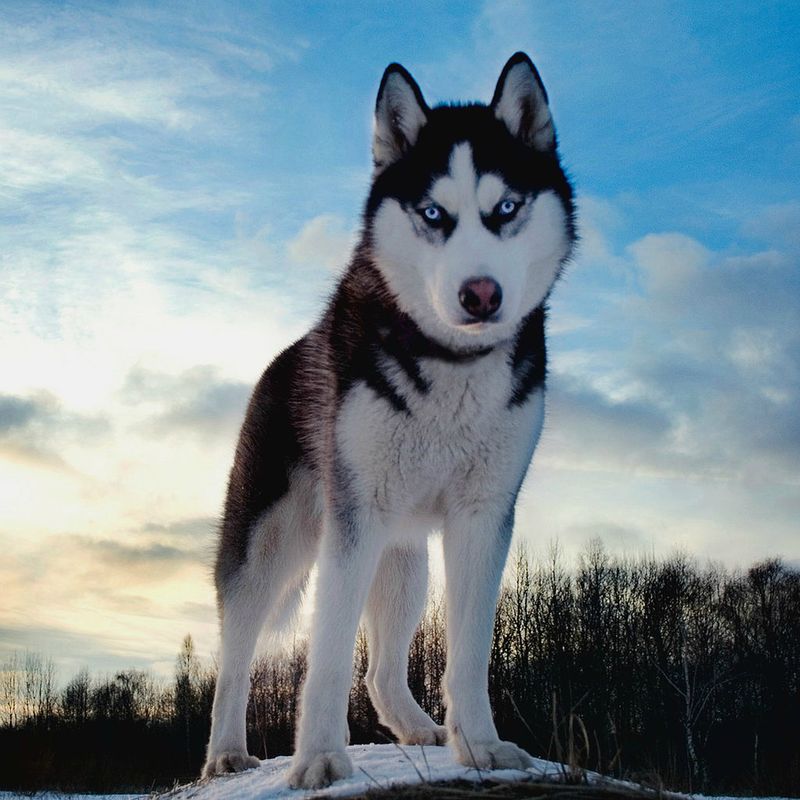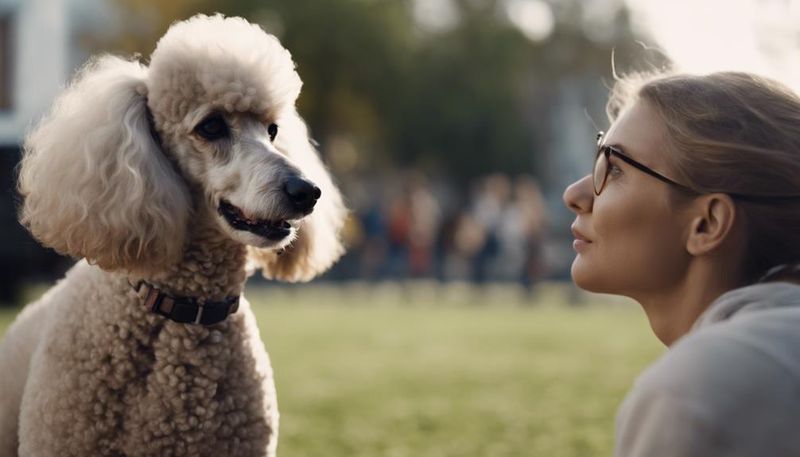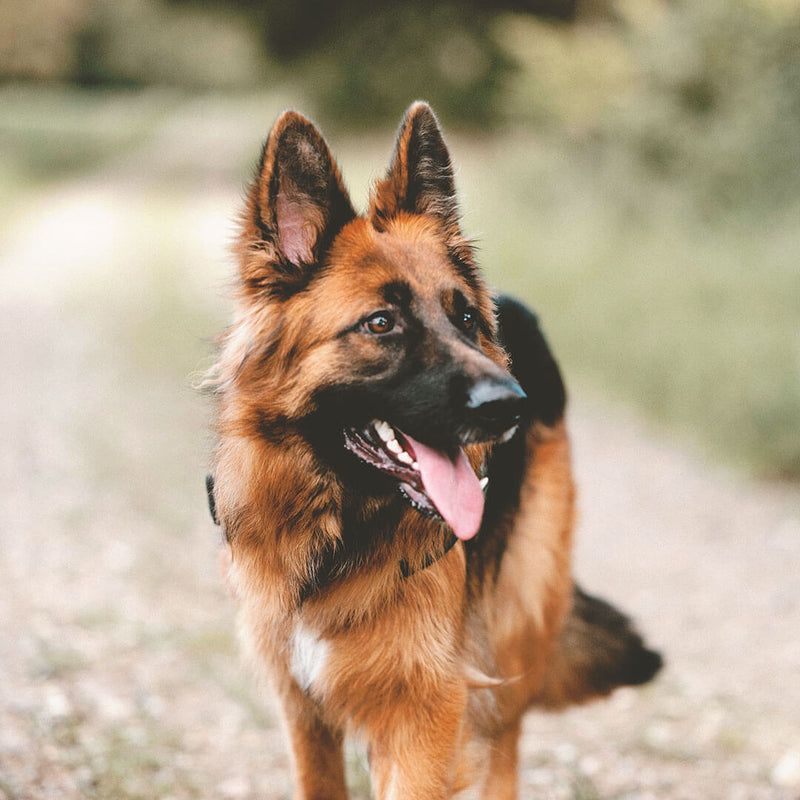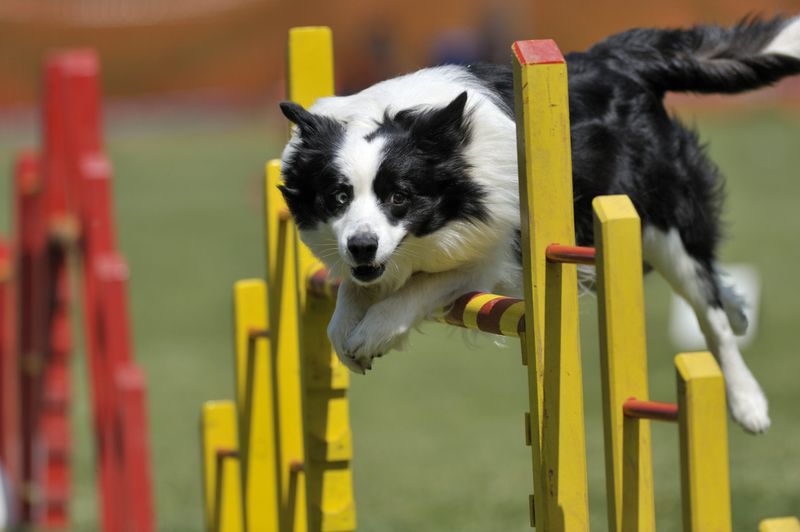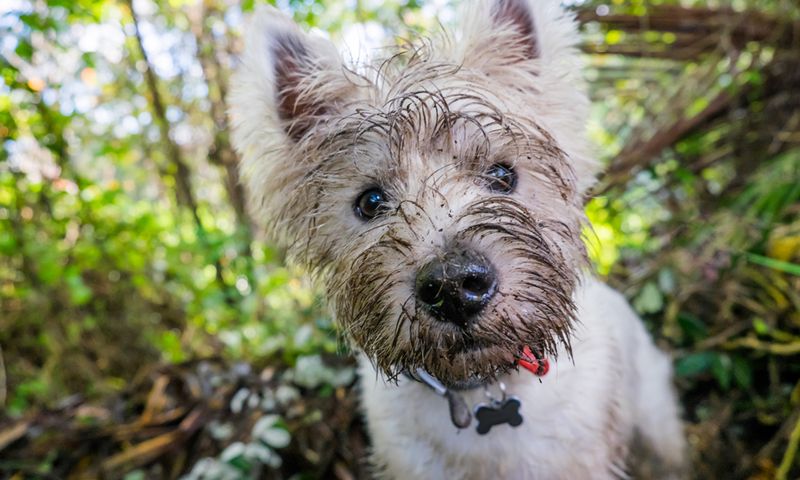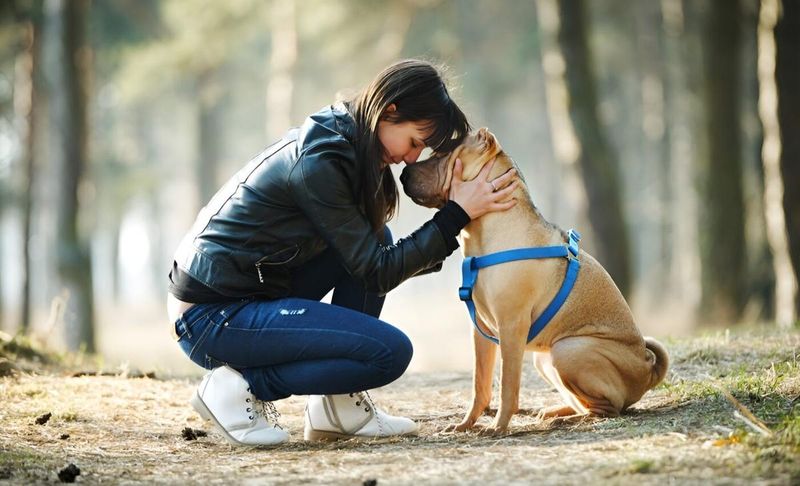Explore the intriguing world of dogs that seem to challenge the rules, not out of mere disobedience, but perhaps due to their intelligence. These clever canines often surprise their owners with unexpected acts of ingenuity, leaving many to wonder if they are simply too smart for their own good. This article delves into 10 such dogs, showcasing their unique behaviors, while providing five insightful reasons behind their rebellious antics. From cunning escapes to problem-solving feats, discover why these dogs are often a step ahead, and what it means for those who share their homes with these fascinating companions.
Jack Russell Terrier
The Jack Russell Terrier may be small, but this pint-sized dynamo is big on brains. Known for their unyielding determination, these terriers are always ready for action. Their inquisitive nature often leads them into mischief, delighting and frustrating owners in equal measure. These dogs are not just about chasing balls; they’re about understanding how to get them from impossible places. Their minds are as energetic as their bodies, requiring constant engagement. Keeping a Jack Russell busy is the key to happiness for both dog and owner. A bit of creativity goes a long way with this lively companion.
Siberian Husky
With roots in the icy Siberian wilderness, the Siberian Husky is a breed that thrives on teamwork and independence. These dogs are born to run and explore, often testing boundaries and limits. It’s not uncommon for a Husky to find ways out of fenced yards, driven by their innate sense of adventure. Their intelligence, paired with a strong will, can sometimes be mistaken for stubbornness. However, it’s their instinct to seek challenges that keeps them sharp. Engaging them with tasks that mimic their natural environment can prevent those daring escapes and keep their minds engaged.
Poodle
Poodles are often associated with sophistication and flair, but they’re also among the most intelligent breeds. Their ability to learn quickly makes them stand out in obedience training. Yet, this same intelligence can lead to boredom if not properly stimulated. Poodles are known for their playful problem-solving skills. Whether it’s figuring out a new toy or learning a new trick, they thrive on mental challenges. Their lively demeanor is balanced by a keen understanding of their surroundings. Providing a variety of activities ensures they remain content and engaged, preventing any clever yet disruptive behavior.
German Shepherd
German Shepherds are celebrated for their loyalty and intelligence. Often employed in roles that require quick thinking and agility, these dogs are not just followers, but leaders in their own right. Their ability to assess situations and react appropriately is remarkable. However, their independent thinking can sometimes be mistaken for disobedience. This breed thrives on structure and purpose. Engaging their minds with tasks or training sessions can prevent restlessness. Their natural instincts make them excellent problem solvers, often anticipating their owner’s needs before a command is given. It’s this blend of intelligence and intuition that defines them.
Labrador Retriever
Often seen as the quintessential family dog, the Labrador Retriever is as smart as it is loving. Their eagerness to please is balanced by an inquisitive mind. Labs are quick learners, always ready to take on a new challenge. Their intelligence often shines through in their ability to understand complex commands and situations. However, their curious nature can occasionally lead them into trouble. These dogs benefit from consistent training and tasks that engage both body and mind. Their playful spirit is complemented by a remarkable understanding of human emotions, making them both fun and empathetic companions.
Dachshund
Dachshunds may be known for their long bodies and short legs, but their intelligence is anything but short. These clever dogs were originally bred for hunting, giving them a keen sense of smell and determination. Their curiosity often leads them to explore every nook and cranny. Sometimes, their independent streak can be mistaken for stubbornness, but it’s just their way of problem-solving. Engaging them with scent games or tasks that tap into their hunting instincts can keep them satisfied. Their playful yet independent nature requires understanding and patience, allowing their cleverness to shine through.
Border Collie
Border Collies are renowned for their sharp intellect and boundless energy. With a history steeped in herding, these dogs are always on the lookout for a new task. Some might say their cleverness borders on cunning. Imagine a dog that can open gates or find hidden treats with ease. This breed often surprises its owners with problem-solving skills that rival a child’s logic. Their desire to work can sometimes be misinterpreted as disobedience. However, it’s usually their intelligent mind seeking stimulation. A simple game or task can keep them happily engaged, preventing those mischievous escapades.
Australian Shepherd
The Australian Shepherd is not just a pretty face; this dog is a powerhouse of energy and intelligence. Known for their herding skills, these dogs require constant mental stimulation. Their ability to anticipate commands and understand complex tasks makes them impressive companions. However, boredom can lead to mischievous behavior, as their minds need constant engagement. Interactive games and challenges can harness their energy and intelligence positively. This breed thrives in environments where they can use their skills constructively, showcasing their remarkable ability to adapt and learn. With the right guidance, they become both loyal and entertaining partners.
Chihuahua
Chihuahuas may be small in stature, but their personalities are anything but. These pint-sized pups are often misunderstood, their intelligence sometimes overshadowed by their boldness. Known for their loyalty, Chihuahuas are quick learners, often surprising their owners with their adaptability. Their keen sense of observation allows them to pick up on routines and commands swiftly. Despite their size, they require mental stimulation to prevent boredom. Engaging them with training exercises or playful activities keeps their minds sharp. These tiny dogs pack a punch when it comes to personality and intelligence, making them delightful companions.
Beagle
Beagles are renowned for their acute sense of smell and tracking abilities. Their history as scent hounds means they’re always on the move, guided by their noses. This innate curiosity can sometimes lead them into trouble, as they follow their instincts rather than commands. However, this trait is a testament to their intelligence and determination. Beagles need activities that challenge their senses, such as scent games or tracking exercises. Their lively and engaging nature makes them wonderful companions for those who understand their unique needs. With proper guidance, their curious minds find the perfect outlet for exploration.
Curiosity
Curiosity is the hallmark of many intelligent dog breeds. It drives them to explore and understand their surroundings, often leading to behaviors that seem disobedient. However, this curiosity is a sign of their inquisitive minds. Dogs that are curious tend to be quick learners, eager to engage with new experiences. Providing them with a variety of stimuli, such as new toys or environments, keeps their minds active. This trait is particularly strong in breeds known for their intelligence, making them both challenging and rewarding to own. Embracing this curiosity can lead to a deeper bond between dog and owner.
Boredom
Boredom often results in behaviors mistaken for disobedience. Intelligent dogs require constant mental and physical stimulation. When left without engaging activities, they find their own entertainment, which can lead to mischievous acts. This is not a reflection of poor behavior, but a need for mental engagement. Owners can prevent boredom by introducing new activities, toys, or training sessions regularly. Understanding the importance of routine stimulation is key to managing behavior. Dogs that are mentally challenged are happier and less likely to engage in destructive behavior. Recognizing boredom as a factor can improve both the dog’s and owner’s quality of life.
Independence
Independence is a common trait in intelligent dogs, often leading them to make their own decisions. While this can be seen as disobedience, it’s usually a sign of confidence and self-assuredness. Dogs with an independent streak often thrive when given opportunities to explore and make choices. Training these dogs requires patience and understanding, allowing them to learn at their own pace. Independence doesn’t mean a lack of loyalty; rather, it showcases their ability to think independently. Encouraging this trait through positive reinforcement and trust-building activities can lead to a harmonious relationship.
Problem-Solving
Problem-solving skills are a hallmark of intelligent dogs, enabling them to overcome challenges that may stump other breeds. These dogs thrive on puzzles and tasks that require thought and creativity. While this ability makes them fascinating companions, it sometimes leads to behaviors that seem unruly. Providing problem-solving activities can channel their intelligence constructively. Toys that challenge their minds or activities that require critical thinking are beneficial. Recognizing and nurturing this skill keeps dogs engaged and happy, preventing them from turning to less desirable behaviors. Encouraging problem-solving ensures a fulfilling life for both the dog and its owner.
Communication
Communication is key for intelligent dogs, who often develop unique ways to express their needs and desires. This might include specific barks, whines, or even physical gestures. Their ability to communicate can sometimes be misinterpreted as demanding behavior. However, it’s essential to recognize this as a sign of intelligence. Teaching dogs to communicate effectively can prevent frustration on both sides. Engaging them in activities that enhance their communication skills, such as interactive games or training exercises, fosters a deeper understanding. Appreciating their attempts to communicate strengthens the bond between dog and owner.
